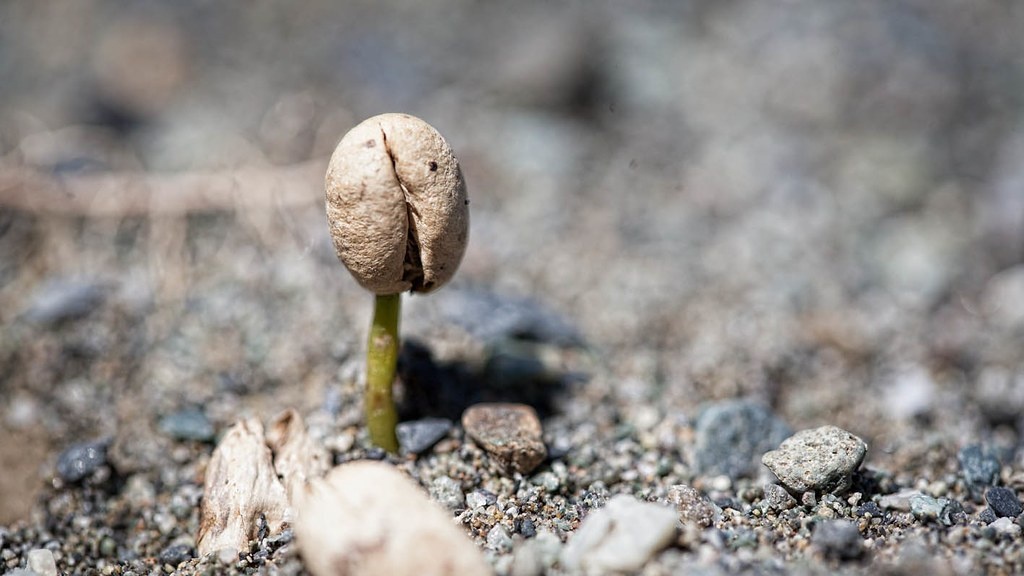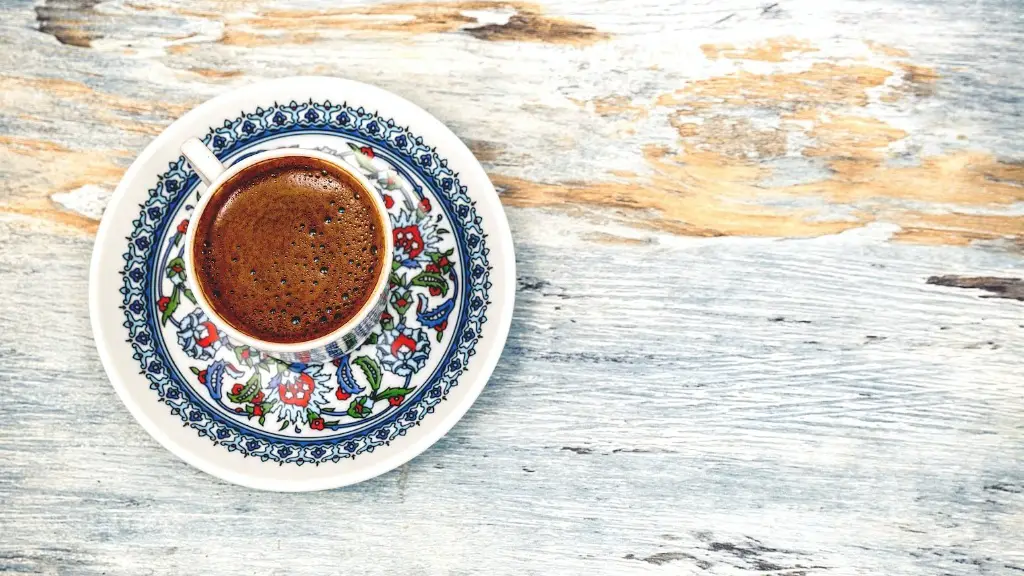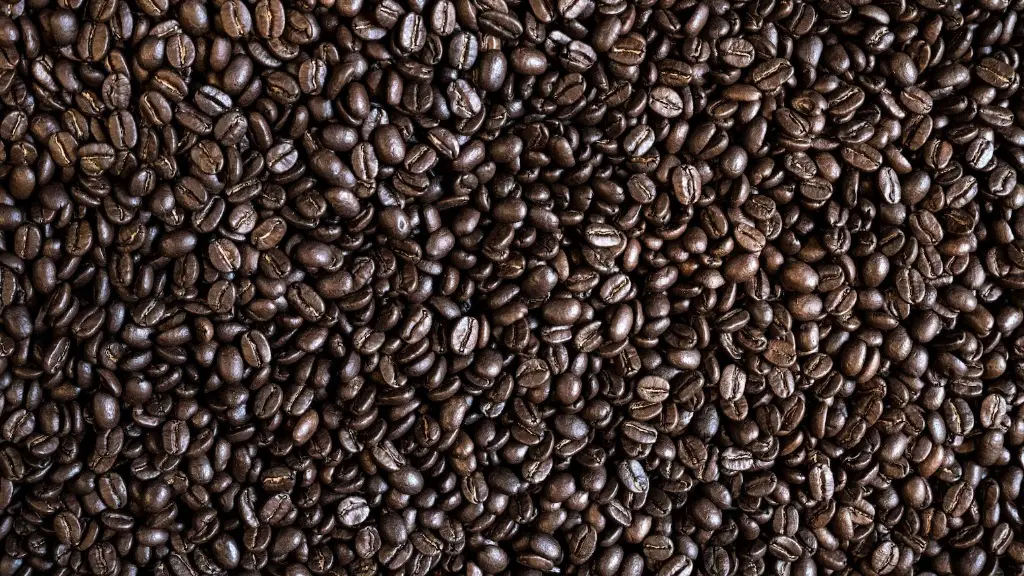Coffee is the most popular and widely consumed caffeinated beverage in the world. Women have long been enjoying this beverage, especially those experiencing their menstrual cycle. The effects of drinking coffee while on periods have been widely debated, with some advocating its benefits while others warning against its risks. This article sets out to investigate this topic and determine the best course of action when it comes to drinking coffee during your period.
Caffeine is known to stimulate the body, providing a boost in energy and alertness. It has been widely used for its therapeutic benefits, such as increased energy and focus, as well as its potential to decrease fatigue and improve overall mood. These benefits may be particularly interesting for those experiencing their period, as the symptoms of this time often include tiredness and mild depression.
Research has indicated that women metabolize caffeine differently when on their period and this may have an impact on the effects of the beverage. Studies have shown that the half-life of caffeine, the amount of time the body takes to eliminate 50% of the ingested dose, is increased in women taking contraceptives that contain both estrogen and progestin, indicating a slower metabolism in women experiencing their menstrual cycle.
Despite potential benefits, there are some potential risks associated with drinking coffee while on your period, including increased anxiety and insomnia. Caffeine stimulates the nervous system, increasing alertness and decreasing fatigue, but excessive intake can lead to an increased heart rate and feelings of jitteriness. It is therefore important to consider your own health and sensitivity before taking coffee while on your period.
Experts advise drinking coffee in moderation. While it may not be dangerous per se to consume coffee during menstruation, it is important to monitor your body’s response and make sure that any potential risks are taken into consideration. When consuming caffeine, it is advised to limit intake to no more than 200-300mg of caffeine. This is equivalent to about two to three cups of coffee a day.
One of the main benefits of drinking coffee during your period is that it can help to reduce fatigue and improve your energy levels. This can be especially beneficial for those who suffer from premenstrual syndrome, or PMS. Caffeine can help to reduce the symptoms of PMS, such as headaches, bloating, and muscle pain, and is often recommended as a natural remedy. However, again it is important to be mindful of your caffeine intake and monitor your body’s response to ensure you do not experience any unwanted effects.
In conclusion, drinking coffee while on your period can potentially provide some health benefits, such as increased energy levels and improved mood. However, it is important to be mindful of your body’s response and keep your caffeine intake to no more than 200-300mg per day. Those with a high sensitivity to caffeine should be especially mindful of their coffee intake.
Is There an Alternative to Coffee?
If you are looking for an alternative to coffee, there are many options available. Herbal teas are an excellent option for those looking for a naturally caffeine-free beverage. Teas such as chamomile, ginger and peppermint are known for their soothing and calming effects, and can be enjoyed hot or cold. Additionally, fluid-rich beverages such as coconut water or electrolyte-infused drinks may be beneficial for those suffering from period-related dehydration.
For added health benefits, consider adding pure, organic honey to your hot drink of choice. Honey is known for its anti-inflammatory and immunity-boosting properties and is associated with improved cognitive function, making it a great addition to any beverage. Additionally, adding pure, organic maple syrup to hot drinks can also provide a natural sweetener, while adding essential minerals and vitamins to your diet.
Finally, consider adding adaptogenic herbs to your hot beverage of choice. Adaptogens, such as chaga, ashwagandha and maca, are known for their ability to reduce stress and regulate hormones, in turn increasing energy and promoting better sleep overall. These herbs can be added to hot drinks for additional health benefits.
What Are the Potential Side Effects of Drinking Coffee During Your Period?
As with any caffeinated beverage, there are potential side effects associated with drinking coffee during menstruation. The most common side effects of consuming too much caffeine include anxiety, insomnia, headaches, irritability, and restlessness. Caffeine is also known to increase heart rate and blood pressure, and this can be particularly dangerous for those with pre-existing conditions. Additionally, excessive caffeine intake can lead to dehydration and electrolyte imbalances, and can contribute to hormonal imbalances in the body.
It is important to note that these side effects may vary from person to person, and that it is important to be mindful of your body’s response to caffeine intake. Additionally, those with pre-existing medical conditions should be sure to speak to their doctor before consuming caffeinated beverages.
Finally, some studies have indicated that drinking coffee during your period may increase the risk of developing fibroids. Fibroids are noncancerous tumors that can grow in the uterus and can be painful and uncomfortable. However, further research is needed to determine the exact risks of drinking coffee during your period.
Does Everyone React to Coffee in the Same Way?
No, everyone reacts to caffeine differently, and this includes those experiencing their menstrual cycle. It is important to understand how your own body responds to caffeine and how much is too much for you specifically, as excessive caffeine intake may result in unwanted side effects. Additionally, those with a high sensitivity to caffeine should be especially mindful of their intake, as they may experience more pronounced effects.
It is also important to consider the type and quality of coffee, as some coffees may be more caffeinated than others. In general, light roast coffees contain lower concentrations of caffeine than darker roasts, as do decaffeinated varieties. When it comes to adding dairy and sugar, it is important to remember that these will add calories to your beverage, and this may be something to consider if you are looking to keep your caloric intake low.
In conclusion, everyone reacts differently to caffeine and this should be taken into account when considering drinking coffee during your period. While moderate caffeine intake can potentially provide health benefits, it is important to understand how your body responds to the beverage and how much is too much. Additionally, be aware of the type and quality of coffee, as well as any added dairy and sugar, to ensure you are getting the best possible health benefits.
Can Coffee Help to Reduce PMS Symptoms?
It is thought that coffee may be beneficial in reducing the symptoms associated with PMS. Caffeine has been found to reduce fatigue, improve alertness and focus, and enhance overall mood. Additionally, research has indicated that coffee may have anti-inflammatory properties, helping to reduce the physical symptoms of PMS, including headaches and bloating.
However, it is important to be aware of the risks associated with excessive caffeine intake, as increased intake can lead to higher levels of stress and anxiety. Additionally, those with a high sensitivity to caffeine should be mindful of their coffee intake and ensure they are not drinking too much. Furthermore, those suffering from chronic fatigue or insomnia should avoid drinking coffee during their period, as the caffeine may exacerbate their symptoms.
Finally, it is important to remember that caffeine is not the only remedy for menstrual woes. There are many natural remedies that can be used to reduce the symptoms associated with PMS, such as eating clean, exercising regularly, reducing stress levels, and getting enough sleep. Additionally, some studies have indicated that certain herbs, such as chasteberry, can have beneficial effects on PMS symptoms.
Should You Drink Coffee During Your Period?
Ultimately, the decision to drink coffee during your period is up to you. Research has indicated that moderate caffeine intake may provide some health benefits, such as increased energy and improved mood. Additionally, coffee may be beneficial in reducing the symptoms of PMS. However, it is important to be aware of the potential risks associated with excessive caffeine intake and to remember that everyone responds to caffeine differently. Therefore, it is important to be mindful of your body’s response and limit your caffeine intake to no more than 200-300mg per day to ensure your safety and wellbeing.





